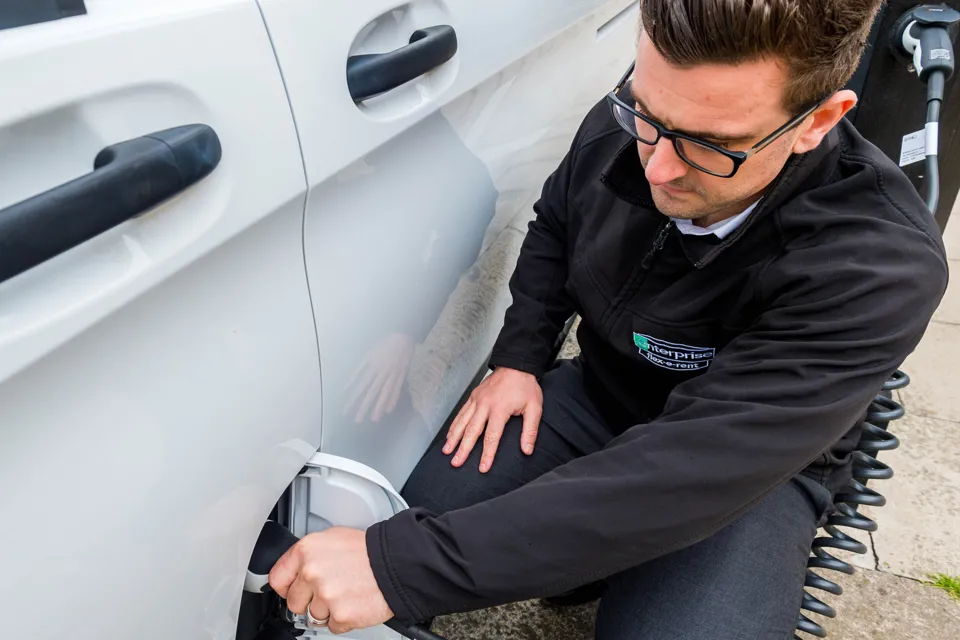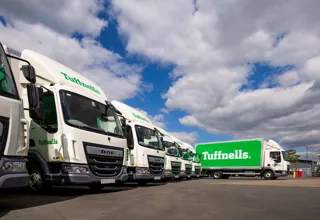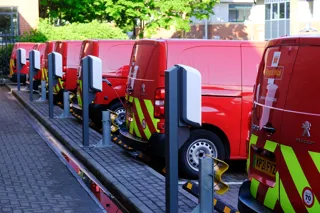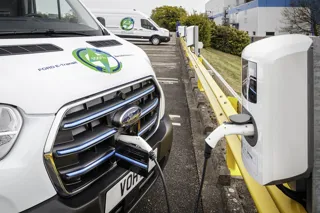Enterprise Flex-E-Rent’s plug-in rental fleet has grown with the addition of 100 electric vans, which will be available for daily rental as well as for longer-term flexible rental.
The new plug-in rental vehicles will be available from 14 Enterprise Flex-E-Rent depots in the South of England and the Midlands.
They include Mercedes 55/44 kWh eSprinter vans, smaller 35 kWh Mercedes eVito Panel vans and Renault Kangoo E-Tech car-derived vans.
Enterprise says that the investment will support businesses trying out electric vehicles (EVs) as they plan for the ending of the sale of new petrol and diesel cars and vans in 2030.
The plug-in fleet expansion comes after Enterprise announced it had taken delivery of 17 Toyota hydrogen fuel cell electric cars an effort to explore alternative fuels to deliver low- and zero-emission transport.
The Toyota Mirai saloons will be used in a pilot programme by existing corporate customers in different parts of the country, by Enterprise Car Club members and by Enterprise employees.
Danny Glynn, managing director of Enterprise Flex-E-Rent, said: “We believe we have a valuable role to play in the decarbonisation of transportation through the adoption of the latest technologies.”
Enterprise was one of the first rental companies to experiment with electric vans. In 2018, it partnered with infrastructure services specialist FM Conway to trial the use of plug-in electric vans in its London operations.
Glynn continued: “We are encouraging all business customers to trial plug-in electric vehicle technology, especially in areas where clean air or low emission zones are in place or likely to come into effect soon.”
Many UK towns and cities are planning to introduce clean air zones (CAZs) in 2021, driving interest in electric vehicles, and London has already announced the expansion of its ultra-low emission zone in October 2021.
Enterprise says that it is being contacted by many fleets keen to understand how rental vehicles can help them shift to alternative fuels and reduce carbon emissions.
The introduction of these vans supports the increasingly important role electric vehicles have in the advancement of sustainable mobility, as well as in Enterprise’s fleet overall, it says.
Glynn said: “Despite the perceptions around range and network, many businesses can quickly adapt to the requirements of using plug-in electric vehicles once they get started.
“There are many applications ideally suited for electric vans in service businesses and for deliveries, and we’re already discussing options with several of our customers.”
He added: “We are working with a range of stakeholders, including from Government, utilities, infrastructure providers, vehicle manufacturers and other partners to collaborate on this topic. It will take everyone working together to ensure the market is ready to support the viability of EVs on a mass scale.”
The expanded electric van fleet marks the next step in Enterprise’s investment in alternative fuel vehicles.
























Login to comment
Comments
No comments have been made yet.